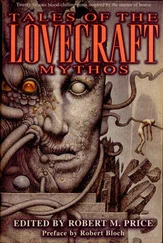Robert Pirsig - Lila. An Inquiry Into Morals
Здесь есть возможность читать онлайн «Robert Pirsig - Lila. An Inquiry Into Morals» весь текст электронной книги совершенно бесплатно (целиком полную версию без сокращений). В некоторых случаях можно слушать аудио, скачать через торрент в формате fb2 и присутствует краткое содержание. Жанр: Современная проза, на английском языке. Описание произведения, (предисловие) а так же отзывы посетителей доступны на портале библиотеки ЛибКат.
- Название:Lila. An Inquiry Into Morals
- Автор:
- Жанр:
- Год:неизвестен
- ISBN:нет данных
- Рейтинг книги:3 / 5. Голосов: 1
-
Избранное:Добавить в избранное
- Отзывы:
-
Ваша оценка:
- 60
- 1
- 2
- 3
- 4
- 5
Lila. An Inquiry Into Morals: краткое содержание, описание и аннотация
Предлагаем к чтению аннотацию, описание, краткое содержание или предисловие (зависит от того, что написал сам автор книги «Lila. An Inquiry Into Morals»). Если вы не нашли необходимую информацию о книге — напишите в комментариях, мы постараемся отыскать её.
Lila. An Inquiry Into Morals — читать онлайн бесплатно полную книгу (весь текст) целиком
Ниже представлен текст книги, разбитый по страницам. Система сохранения места последней прочитанной страницы, позволяет с удобством читать онлайн бесплатно книгу «Lila. An Inquiry Into Morals», без необходимости каждый раз заново искать на чём Вы остановились. Поставьте закладку, и сможете в любой момент перейти на страницу, на которой закончили чтение.
Интервал:
Закладка:
In some diluted and converted sense, he thought, that’s what he was still doing. That’s what this Metaphysics of Quality was, a ridiculous torch no Victorian would accept that he wanted to use to light a way through the darkness for mankind.
What a cornball image. Just awful. Yet there it was, burned into him from childhood.
Twenty and thirty years later he still dreamed of following the path that led between brown-leaved oaks up the hill to the Blake School buildings. But the buildings were all locked and deserted and he couldn’t get in. He tried every door but none were open. He looked in the library window, cupping his hand so that the reflection would not prevent him from seeing inside. There he could see a grandfather clock with a pendulum swinging back and forth, but there was nobody in the room. The only movement was the pendulum. Then the dream ended.
That moth was buzzing again by the lamp.
Maybe he should open the huge glass door to the balcony and shoo it out into the night…
Would that be moral?…
He really didn’t know enough about moths to know whether it was or not.
It would probably just find another light somewhere, a searchlight probably, and really get zapped.
But suppose it flew up from the balcony so high it got free of the lights of the city and saw the moon and began to fly straight. Would that make releasing it moral? What does the Metaphysics of Quality say to that?
Better not to interfere. Maybe that moth had its own patterns to fulfill, and he had his, whatever they were. This Metaphysics of Quality, maybe. Certainly not running around like some Victorian romantic, shooing moths outdoors.
That was the Victorian stance, affecting some romantic notion of social quality without any real intellectual penetration of the meaning of Quality.
Anyway, today they are all gone, those gracious Victorian dinosaurs, and it is possible now to look at them with a little less anxiety and opposition than when they were looking back at you.
Phædrus thought that the reason his thoughts kept returning to them — and maybe Redford’s thoughts, and maybe a lot of other people’s thoughts too — is that something enormously important and mystifying has happened in the time that separates us from them. He thought that in returning to them and trying to fathom who they were, one can begin to make some sense out of the social forces that have upheaved the world since their time. What makes them stand out today like dinosaurs is that a gulf exists between us and them. A huge cultural mutation has taken place. They really were a different cultural species. What the torch of the Metaphysics of Quality seems to illumine is an understanding of this gulf and a recognition that this gulf is one of the most profound in history.
If he were going to be precise in talking about the Victorians he would have to be careful not to imply he was talking about a specific group of people. Victorian, as he used the term, is a pattern of social values that was dominant in a period between the American Civil War and the First World War, not a biological pattern. Mark Twain’s life coincided with this period but Phædrus didn’t think of him as a Victorian. His stock-in-trade was humor that poked fun at Victorian pompousness. He was a relief from the Victorians. On the other hand, Herbert Hoover and Douglas MacArthur were biologically outside the Victorian period most of their lives. But they were Victorians, nevertheless, because their social values were Victorian.
Phædrus thought the metaphysics of substance fails to illuminate the gulf between ourselves and Victorians because it regards both society and intellect as possessions of biology. It says society and intellect don’t have substance and therefore can’t be real. It says biology is where reality stops. Society and intellect are ephemeral possessions of reality. In a substance metaphysics, consequently, the distinction between society and intellect is sort of like a distinction between what’s in the right pocket and what’s in the left pocket of biological man.
In a value metaphysics, on the other hand, society and intellect are patterns of value. They’re real. They’re independent. They’re not properties of man any more than cats are the property of catfood or a tree is a property of soil. Biological man does not create his society any more than soil creates a tree. The pattern of the tree is dependent upon the minerals in the soil and would die without them, but the tree’s pattern is not created by the soil’s chemical pattern. It is hostile to the soil’s chemical pattern. It exploits the soil, devours the soil for its own purposes, just as the cat devours the catfood for its own purposes. In this manner biological man is exploited and devoured by social patterns that are essentially hostile to his biological values.
This is also true of intellect and society. Intellect has its own patterns and goals that are as independent of society as society is independent of biology. A value metaphysics makes it possible to see that there’s a conflict between intellect and society that’s just as fierce as the conflict between society and biology or the conflict between biology and death. Biology beat death billions of years ago. Society beat biology thousands of years ago. But intellect and society are still fighting it out, and that is the key to an understanding of both the Victorians and the twentieth century.
What distinguishes the pattern of values called Victorian from the post-First World War period that followed it is, according to the Metaphysics of Quality, a cataclysmic shift in levels of static value; an earthquake in values, an earthquake of such enormous consequence that we are still stunned by it, so stunned that we haven’t yet figured out what has happened to us. The advent of both democratic and communistic socialism and the fascist reaction to them has been the consequence of this earthquake. The whole Lost Generation of the twentieth century which continues, as lost as ever, through generation after generation, is a consequence of it. The twentieth-century collapse of morals is a consequence of it. Further consequences are on their way.
What distinguishes the Victorian culture from the culture of today is that the Victorians were the last people to believe that patterns of intellect are subordinate to patterns of society. What held the Victorian pattern together was a social code, not an intellectual one. They called it morals, but really it was just a social code. As a code it was just like their ornamental cast-iron furniture: expensive looking, cheaply made, brittle, cold and uncomfortable.
The new culture that has emerged is the first in history to believe that patterns of society must be subordinate to patterns of intellect. The one dominating question of this century has been, Are the social patterns of our world going to run our intellectual life, or is our intellectual life going to run the social patterns? And in that battle, the intellectual patterns have won.
Now, with that illumination, all sorts of things clear up. The reason the Victorians sound so superficial and hypocritical to us today is because of this gulf in values. Even though they were our ancestors they were another very different culture. Trying to understand a member of another culture is impossible without taking into account differences in value. If a Frenchman asks, How can Germans stand to live the way they do? he will get no answer as long as he applies French values to the question. If a German asks, How can the French stand to live the way they do? he will get no answer as long as he applies German values to the question. When we ask how could the Victorians stand to live in the hypocritical and superficial way they did, we cannot get a useful answer as long as we superimpose on them twentieth-century values that they did not have.
Читать дальшеИнтервал:
Закладка:
Похожие книги на «Lila. An Inquiry Into Morals»
Представляем Вашему вниманию похожие книги на «Lila. An Inquiry Into Morals» списком для выбора. Мы отобрали схожую по названию и смыслу литературу в надежде предоставить читателям больше вариантов отыскать новые, интересные, ещё непрочитанные произведения.
Обсуждение, отзывы о книге «Lila. An Inquiry Into Morals» и просто собственные мнения читателей. Оставьте ваши комментарии, напишите, что Вы думаете о произведении, его смысле или главных героях. Укажите что конкретно понравилось, а что нет, и почему Вы так считаете.











